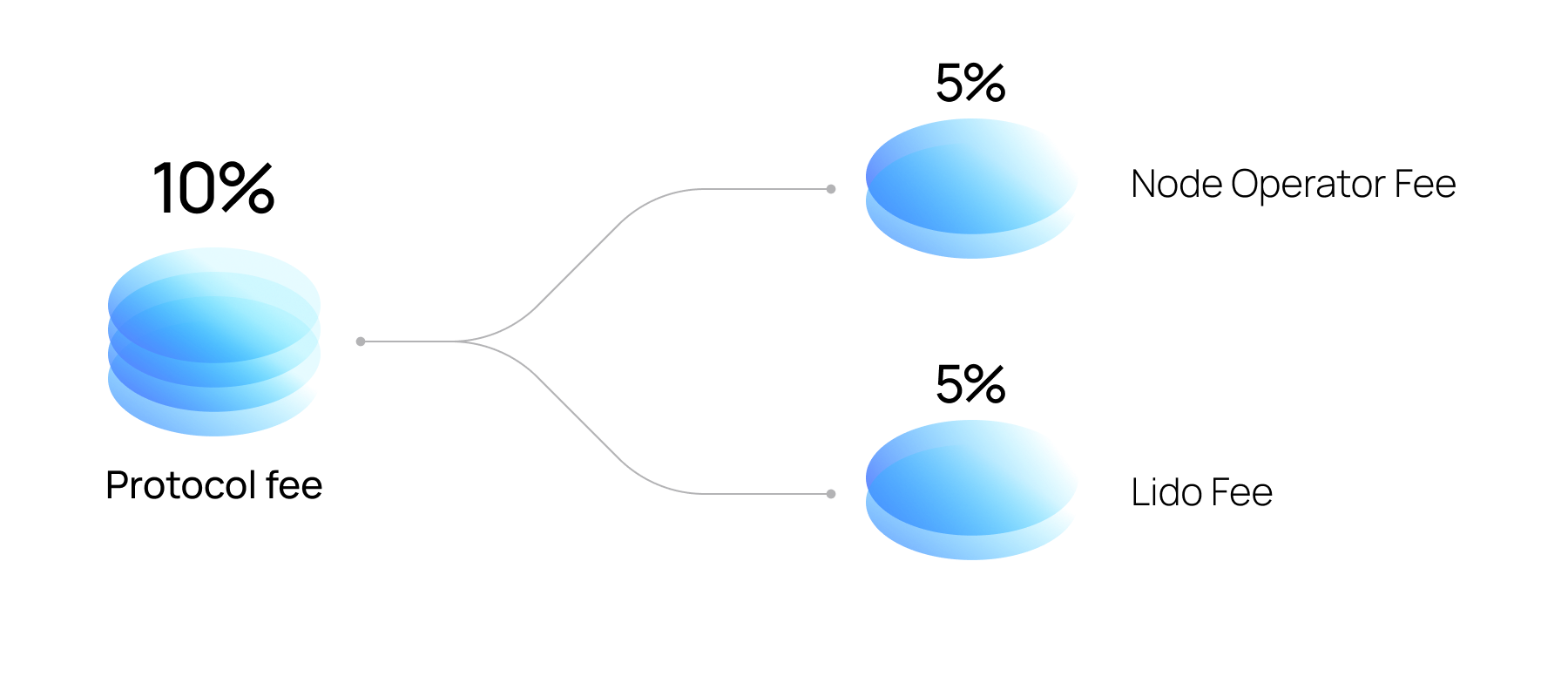 One can consider the Lido protocol as a protocol that connects three actors: the Lido DAO, stakers (stETH holders), and Node Operators (independent third parties that run validators using the Lido protocol). For the protocol to be sustainable, a protocol fee is incurred on staking rewards, which works by "splitting" rewards during the rebase process across these three actors.
Lido charges a protocol fee (currently 10%) on the rewards accumulated by the staked ETH underlying the protocol. This fee sustains the protocol’s operations, supports infrastructure, and funds ecosystem development. It is automatically apportioned as a part of the daily rebase process during the rewards distribution phase. The protocol fee is waived during periods of negative net rewards, when Consensus Layer penalties exceed earned rewards. The fee rate is set by the Lido DAO through on-chain governance, subject to alignment with the protocol’s needs and user interests.
The protocol fee is split into two parts:
One can consider the Lido protocol as a protocol that connects three actors: the Lido DAO, stakers (stETH holders), and Node Operators (independent third parties that run validators using the Lido protocol). For the protocol to be sustainable, a protocol fee is incurred on staking rewards, which works by "splitting" rewards during the rebase process across these three actors.
Lido charges a protocol fee (currently 10%) on the rewards accumulated by the staked ETH underlying the protocol. This fee sustains the protocol’s operations, supports infrastructure, and funds ecosystem development. It is automatically apportioned as a part of the daily rebase process during the rewards distribution phase. The protocol fee is waived during periods of negative net rewards, when Consensus Layer penalties exceed earned rewards. The fee rate is set by the Lido DAO through on-chain governance, subject to alignment with the protocol’s needs and user interests.
The protocol fee is split into two parts:
Node Operator Fee
Compensates node operators for managing validators and maintaining network reliability.
Treasury Fee
Supports Lido DAO operations, infrastructure costs, and long-term research and development efforts. Each staking module has a distinct fee split as set by the Lido DAO in each module's configuration:
| Module | Stakers Rewards (%) | Node Operator Rewards (%) | DAO Rewards (%) |
|---|---|---|---|
| Curated Module | 90% | 5% | 5% |
| Simple DVT | 90% | Blended | Blended |
| Normal Clusters | 90% | 7% (split by NOs) | 2% |
| Super Clusters | 90% | 5% (split by NOs) | 4% |
| Community Staking Module v2 | 90% | Blended | Blended |
| Permissionless | 90% | 3.5% | 6.5% |
| ICS | 90% | 6% | 4% |